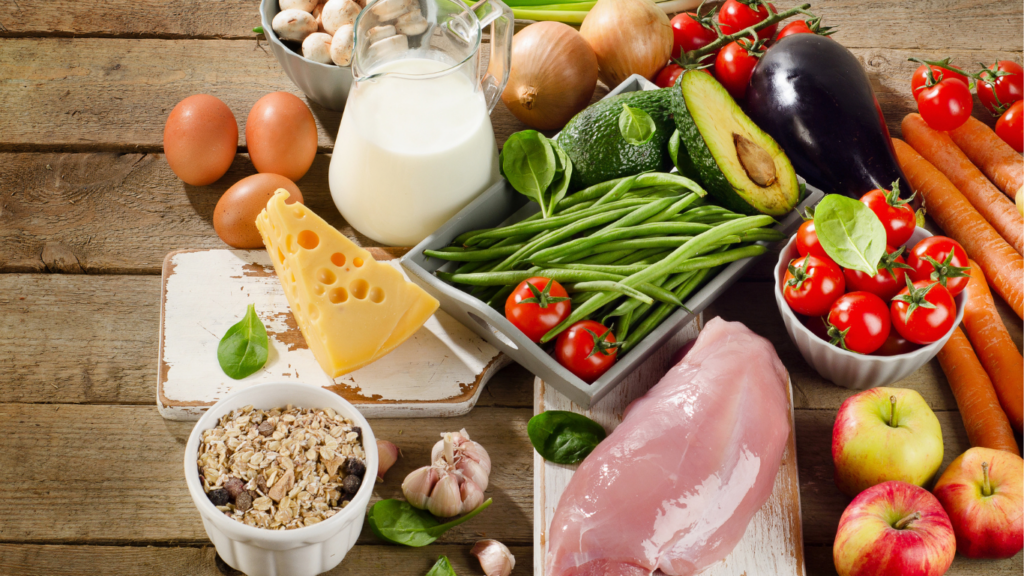The Importance of Nutrition for Athletes
Nutrition forms the backbone of athletic success. Proper intake of nutrients supports energy production, muscle recovery, and mental focus. When athletes consume a balanced diet, they perform better and recover quicker after strenuous activities. Nutrient-rich foods sustain energy levels during training sessions and competitions.
Carbohydrates are the primary source of fuel for athletes, providing essential energy for high-intensity activities. Protein aids in muscle repair and growth, which is crucial after workouts and competitions. Healthy fats contribute to prolonged energy release and are important for overall health.
Vitamins and minerals, such as iron and calcium, play vital roles in increasing stamina and maintaining bone health. Hydration is equally crucial as it regulates body temperature and supports cellular functions, influencing performance.
When athletes prioritize nutrition, they achieve optimal performance. A well-considered diet fosters resilience and helps prevent injuries. Adopting these dietary practices is a proactive approach to enhancing athletic capability and longevity.
Criteria for Selecting Top Foods
Choosing the right foods for athletes involves several key criteria to ensure optimal performance and recovery. Each food must meet specific nutritional needs and contribute to overall athletic health. Here are the primary factors:
- Nutrient Density: Foods must offer high levels of vitamins and minerals per calorie. Examples include kale and broccoli.
- Energy Provision: Foods should provide sustained energy. Complex carbohydrates like brown rice and quinoa fit this criterion.
- Protein Quality: Adequate protein with essential amino acids supports muscle repair. Lean meats and legumes serve as ideal sources.
- Healthy Fats: Sources like avocados and nuts deliver essential fatty acids necessary for energy regulation and cellular function.
- Hydration Support: Foods such as watermelon contain high water content, aiding in fluid balance.
- Digestibility: Easily digestible foods prevent gastrointestinal distress during training. Examples are bananas and sweet potatoes.
- Antioxidant Content: Antioxidants combat oxidative stress. Berries and spinach are rich sources.
- Glycemic Index: Low to moderate glycemic index foods, like oats, provide gradual energy release.
- Micronutrient Composition: Include foods rich in iron, calcium, and magnesium to support stamina and bone health. Spinach and yogurt are examples.
- Versatility: Foods should integrate seamlessly into diverse meal plans. Chicken and beans offer flexibility in preparation methods.
These criteria form a comprehensive approach to selecting foods that empower athletes to achieve their peak potential during training and competition.
Top 10 Foods Every Athlete Should Include in Their Diet

Incorporating the right foods not only enhances performance but also aids in recovery. Each food on this list offers unique benefits to support athletic needs.
Lean Proteins
Consuming lean proteins like chicken and turkey provides essential amino acids for muscle repair and growth. Protein supports recovery and maintains muscle mass, which is crucial after intense training sessions.
Whole Grains
Whole grains such as brown rice and oats supply complex carbohydrates that ensure a steady release of energy. They support long-duration activities by providing the fuel necessary to sustain endurance.
Leafy Greens
Leafy greens, including spinach and kale, offer vital micronutrients like iron and calcium, enhancing stamina and bone strength. They’re packed with antioxidants that fight inflammation and help in recovery.
Berries
Berries like blueberries and strawberries contain high levels of antioxidants, reducing oxidative stress and inflammation. Their natural sugars provide quick energy, which is beneficial for pre-workout consumption.
Nuts and Seeds
Nuts and seeds, such as almonds and chia seeds, deliver healthy fats and protein. They support sustained energy and are ideal for post-workout snacks that aid in satiety and muscle repair.
Greek Yogurt
Greek yogurt is rich in protein and probiotics, promoting muscle recovery and gut health. It’s an excellent source of calcium, which supports bone health, and serves as a versatile snack or meal component.
Sweet Potatoes
Sweet potatoes provide complex carbohydrates and are loaded with vitamins A and C. They aid in energy replenishment post-exercise and support the immune system with their nutrient profile.
Avocados
Avocados offer healthy monounsaturated fats that provide prolonged energy release. They’re also rich in potassium, which helps in muscle function and electrolyte balance.
Salmon
Salmon is an excellent source of omega-3 fatty acids and high-quality protein. Omega-3s reduce inflammation and enhance joint health, making salmon a valuable inclusion for recovery.
Quinoa
Quinoa is a complete protein containing all essential amino acids. It’s high in fiber and iron, promoting sustained energy and oxygen delivery to muscles during exertion.
Benefits of Including These Foods
Incorporating nutrient-rich foods into an athlete’s diet offers numerous advantages. These essential foods boost performance and speed up recovery.
Improved Performance
Foods rich in carbohydrates, like whole grains and sweet potatoes, ensure sustained energy levels throughout intense workouts. Enhanced stamina is key if athletes include leafy greens such as spinach, which supply vital iron for optimal oxygen transport. Including lean proteins such as chicken and salmon supports muscle strength and endurance by aiding muscle repair and growth. Healthy fats from avocados and nuts enhance cognitive function and concentration.
Faster Recovery
Recovery accelerates with adequate protein intake from sources like Greek yogurt and quinoa, facilitating muscle repair. Berries, high in antioxidants, reduce inflammation and oxidative stress after strenuous activities. Energizing glycogen stores quickly with carbohydrates aids rapid recovery, allowing athletes to maintain high training volumes. Omega-3-rich salmon combats inflammation, improving recovery times while also positively impacting joint health.
Tips for Incorporating These Foods
Incorporating the right foods into an athlete’s diet enhances performance and recovery. Strategic meal planning and snack choices optimize the intake of essential nutrients.
Meal Planning Ideas
I create balanced meals by combining:
- lean proteins
- carbohydrates
- healthy fats
For breakfast, I often make oatmeal topped with berries and almonds, providing a mix of complex carbs and antioxidants. Lunch might include grilled chicken salad with spinach, quinoa, and avocado, ensuring a nutrient-dense, filling option. For dinner, salmon with brown rice and steamed kale offers omega-3s and sustained energy. These meals not only satisfy hunger but also support my training.
Snack Suggestions
Snacking helps maintain energy levels throughout the day. I like having Greek yogurt with chia seeds and strawberries as a mid-morning option, delivering protein and fiber. In the afternoon, I often grab a handful of almonds or a small serving of trail mix with dried fruits, allowing for quick refueling. Post-workout, a smoothie with bananas, spinach, and protein powder aids in recovery. These snacks keep me energized and ready for the next challenge.

 Milla Collings plays a pivotal role at Make Athlete Action, where her expertise in sports nutrition and conditioning has been invaluable in crafting content that resonates with athletes and fitness enthusiasts alike. With a deep understanding of how nutrition impacts performance, Milla has contributed extensively to the platform’s nutrition and conditioning segments, ensuring that athletes receive practical, science-backed advice. Her commitment to excellence has helped elevate Make Athlete Action as a trusted source of knowledge for anyone looking to optimize their diet and achieve their peak performance.
Milla Collings plays a pivotal role at Make Athlete Action, where her expertise in sports nutrition and conditioning has been invaluable in crafting content that resonates with athletes and fitness enthusiasts alike. With a deep understanding of how nutrition impacts performance, Milla has contributed extensively to the platform’s nutrition and conditioning segments, ensuring that athletes receive practical, science-backed advice. Her commitment to excellence has helped elevate Make Athlete Action as a trusted source of knowledge for anyone looking to optimize their diet and achieve their peak performance.